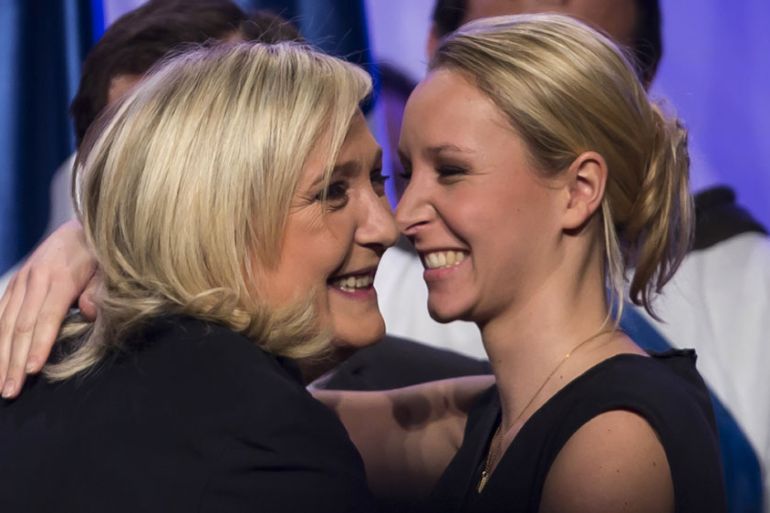French regional poll to test the strength of far-right
Second round of elections to show whether far-right National Front can win control of a region for the first time.

French voters go to the polls in the second round of regional elections that will show whether the far-right National Front can turn popularity into power.
Boosted by fears over Europe’s refugee crisis and attacks that killed 130 people in Paris a month ago, Marine Le Pen’s party made a breakthrough last week by leading in the first round.
Keep reading
list of 4 itemsControversial law sparks fist fight in Georgian parliament
‘Prejudice, Islamophobia’: Free speech fears as UK redefines extremism
Dominican FM on Haiti gang violence crisis: Spillover threat?
But the anti-immigration, anti-Europe National Front (FN) is by no means certain to win in any of the 13 regions in this Sunday’s run-offs.
That will depend largely on what left-wing voters will do after the Socialist party pulled out of the race in the two regions where the FN was best placed – the north where Le Pen is a candidate and the southeast where her niece Marion Marechal-Le Pen is running.
Read more: France’s far-right party leading in regional vote
The Socialist party urged its supporters to back Nicolas Sarkozy’s conservatives in those two constituencies to keep the FN out of power, and a series of opinion polls have shown that voters might well be heeding that call.
But polls have not been run for all regions and several polls – especially in the southeast – have forecast only small differences between the candidates that were often within the margin of error for such surveys.
‘Very tight race’
“The only thing that is certain is that it will be a very tight race,” political analyst Joel Gombin, a specialist of the far-right, said of the run-offs.
He said there were many unknowns, including the turnout. Just under one in two voters turned up at the polling stations last week.

Much attention will also be focused on the northeast Alsace-Champagne-Ardenne-Lorraine region, where the Socialist candidate rejected his party’s call to drop out of the run-offs.
The run-offs will be key for all three front-runners for the 2017 presidential elections, Socialist President Francois Hollande, ex-president Sarkozy and Le Pen.
The FN has never managed any constituency larger than a few small and medium-sized towns, and winning a region is key to its strategy to try and convince voters it could eventually be trusted to rule the country.
In local elections in March, the FN failed to win any departments – councils that are smaller than the regions – in the run-offs despite a strong showing in the first round.
That was partly because, as opposed to mainstream parties, it is isolated and has no one it can strike alliances with between the two rounds.
For Sarkozy, who was hoping a landslide victory would boost his chances for re-election in 2017, the first round was a severe disappointment that weakened his hand within his Republicans party.
How many regions the conservatives eventually win in the run-offs will be key to the struggle for power within the party.
The Socialists, who currently rule in all but one of the 22 regions under a map that was redrawn for this election, are certain to suffer big losses.
But, paradoxically, the FN’s strength, by weakening the conservatives, could help them save more regions than they hoped.